Mass Deportations from the Dominican Republic: A Humanitarian Crisis Unfolds at the Haitian Border
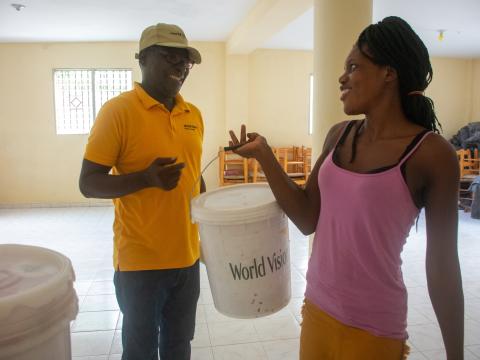
1- The Crisis at the Border
Each day, between 300 and 500 displaced Haitians find themselves at the mercy of the “Groupe d'Appui au Rapatriés et Réfugiés” (GARR), a humanitarian organization in Belladère, Haiti. GARR operates along the Haitian-Dominican border, where it works to defend and promote human rights. But in recent weeks, this small organization has been overwhelmed by a surge in deportees, a direct result of the Dominican Republic's controversial decision to deport up to 1,000 Haitians daily—10,000 each week—into already strained border regions.
According to GARR coordinator, Mr. Rigart, for the past two weeks, Belladère's border crossing has received two to three truckloads of deportees each day, each carrying approximately 100 people. The deportations have occurred without regard for diplomatic agreements intended to safeguard fundamental human rights. Haitians of all statuses and backgrounds, from undocumented workers to those with legal papers, are forcibly returned. Age, gender, or family status offers no protection. Adolescents, adults, the elderly, pregnant women, and children separated from their parents—many of whom arrive barefoot and in nightclothes—are treated with equal disregard.
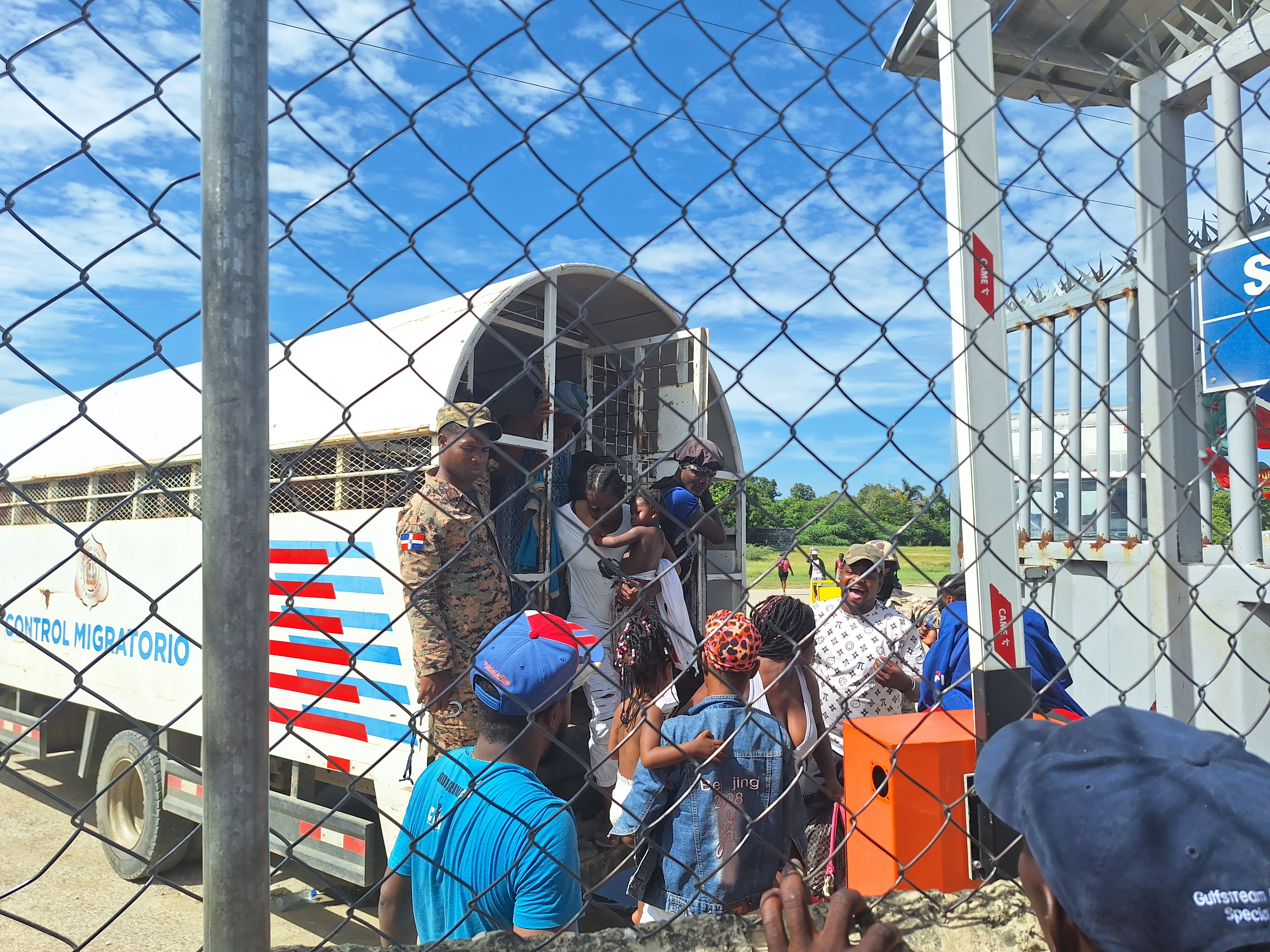
These deportees, stripped of their belongings and often dropped at border points far from their home regions, face an uncertain future. Some, hailing from the Southeast, have been expelled into Central Haiti, an area miles from where they were living. Devoid of money, phones, and any means of contacting loved ones, they are left isolated in an unfamiliar part of their country.
The GARR facility was designed to shelter no more than 50 individuals, yet in the current crisis, it is forced to accommodate up to 350 people for extended periods, sometimes up to three days or longer. Children separated from their parents are sent to “Zanmi Timoun”, another local organization, for care and reunification efforts. “Every night,” Mr. Rigart said, “we convert our conference room into a makeshift dormitory for the men, but we have only a few wool blankets. The bathrooms don’t work, and we have no water tank to provide clean drinking water. Our needs are overwhelming, but our resources are limited.”
2- World Vision Steps In
Following site visits on October 12 and 16, World Vision staff found a dire need for humanitarian intervention. Assessments and testimonies from deportees revealed pressing shortages in hygiene supplies, access to clean water, healthcare, and nutrition services. The most immediate needs were for hygiene kits tailored to the needs of women and infants, along with cash assistance to help deportees return to their families.
In response, World Vision's emergency relief program mobilized 300 Non-Food Item (NFI) kits to distribute to deportees at the GARR and Zanmi Timoun centers. On October 18, 2024, World Vision delivered 186 kits—148 to deportees at the GARR center, and 38 to children at Zanmi Timoun. The remaining 114 kits were handed over to GARR staff to distribute to new arrivals, ensuring continued support for the most vulnerable individuals.
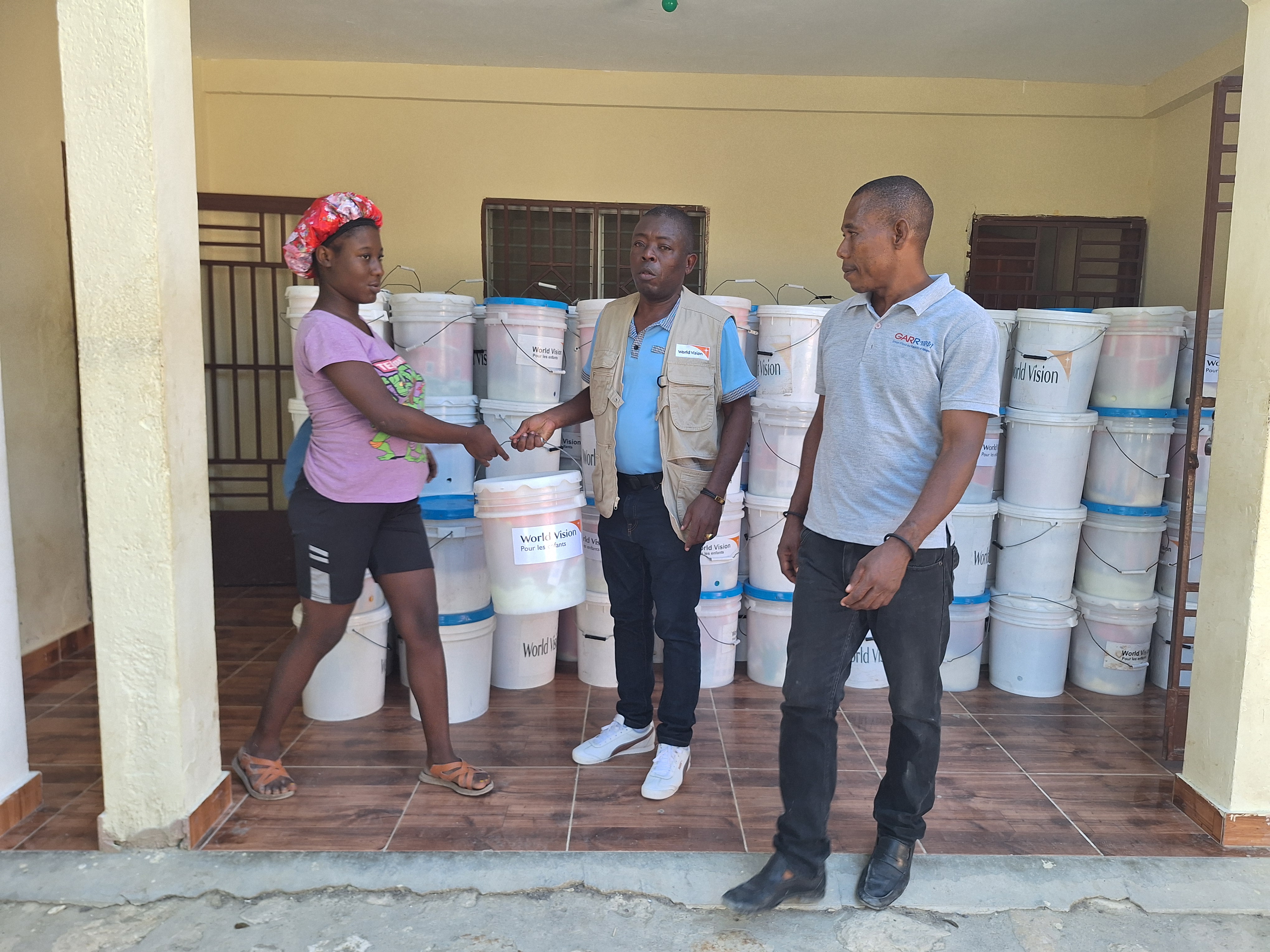
3- Grim Realities at the Centers
What World Vision staff witnessed was stark. Many of the deportees lacked access to even the most basic hygiene supplies, with no toothpaste or soap due to their financial hardships. Teenage girls and women, in particular, needed intimate hygiene products. Infants had no diapers or clean clothing, and pregnant women had no mosquito nets for protection. Across the board, there was a shortage of essential items like blankets, bedding, and clothing. Most deportees had been expelled from the Dominican Republic with only the clothes on their backs.
These gaps in basic necessities underscored the urgency of World Vision’s NFI distribution, helping deportees cope with the challenges of displacement and restoring some measure of dignity in an otherwise dire situation.
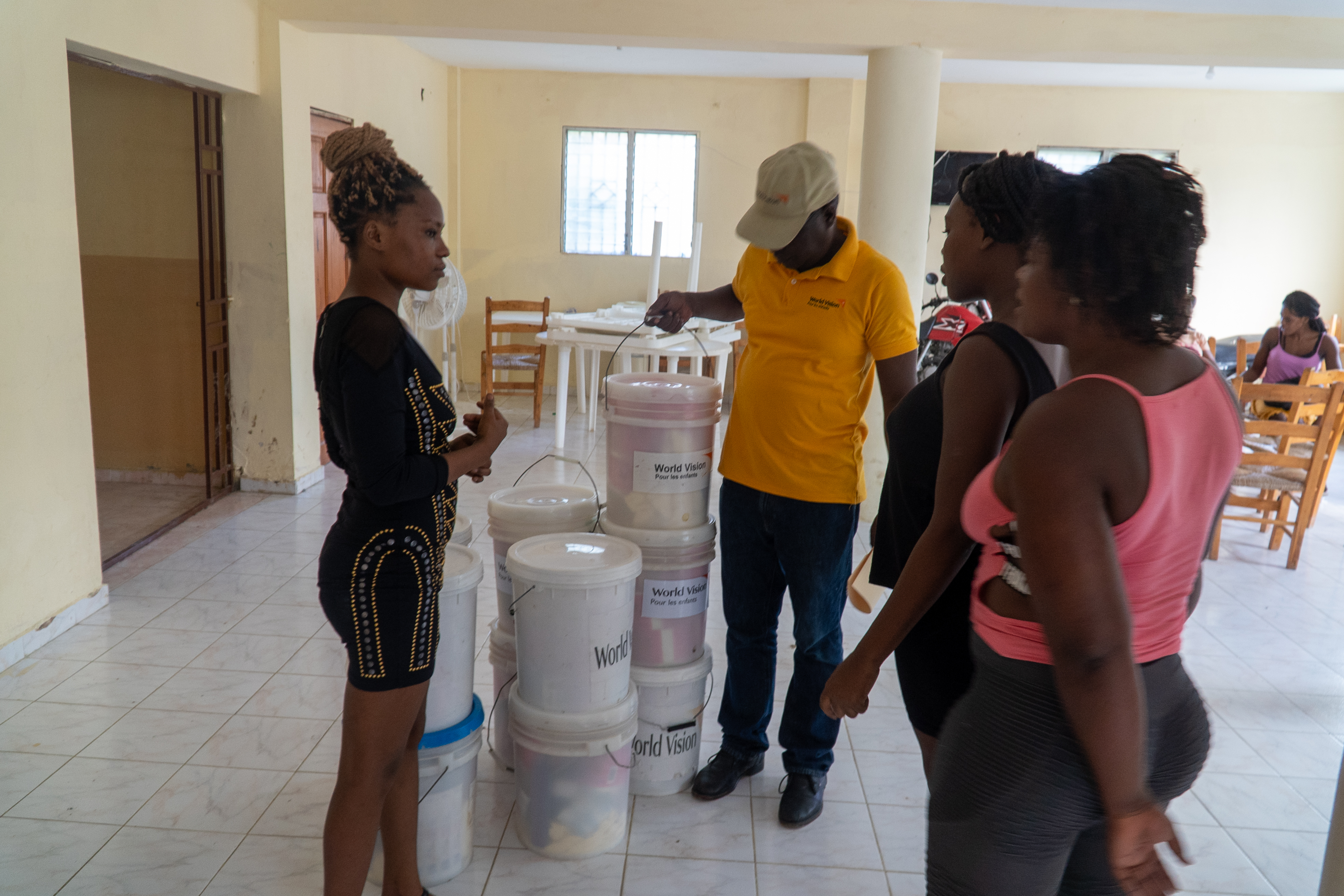
4- Collaborative Efforts
The distribution's success was made possible through close coordination with GARR and Zanmi Timoun staff, who helped identify the most vulnerable deportees, including pregnant women, children, and the elderly. These individuals were registered beforehand, ensuring that aid could be distributed efficiently.
The International Organization for Migration (IOM) provided relocation assistance on the distribution day. Deportees received 3,000 Haitian Gourdes (HTG) in cash, allowing them to travel closer to their homes or reunite with family. This combined effort—relocation assistance from IOM and NFI kits from World Vision—offered a lifeline to many deportees struggling to regain stability.
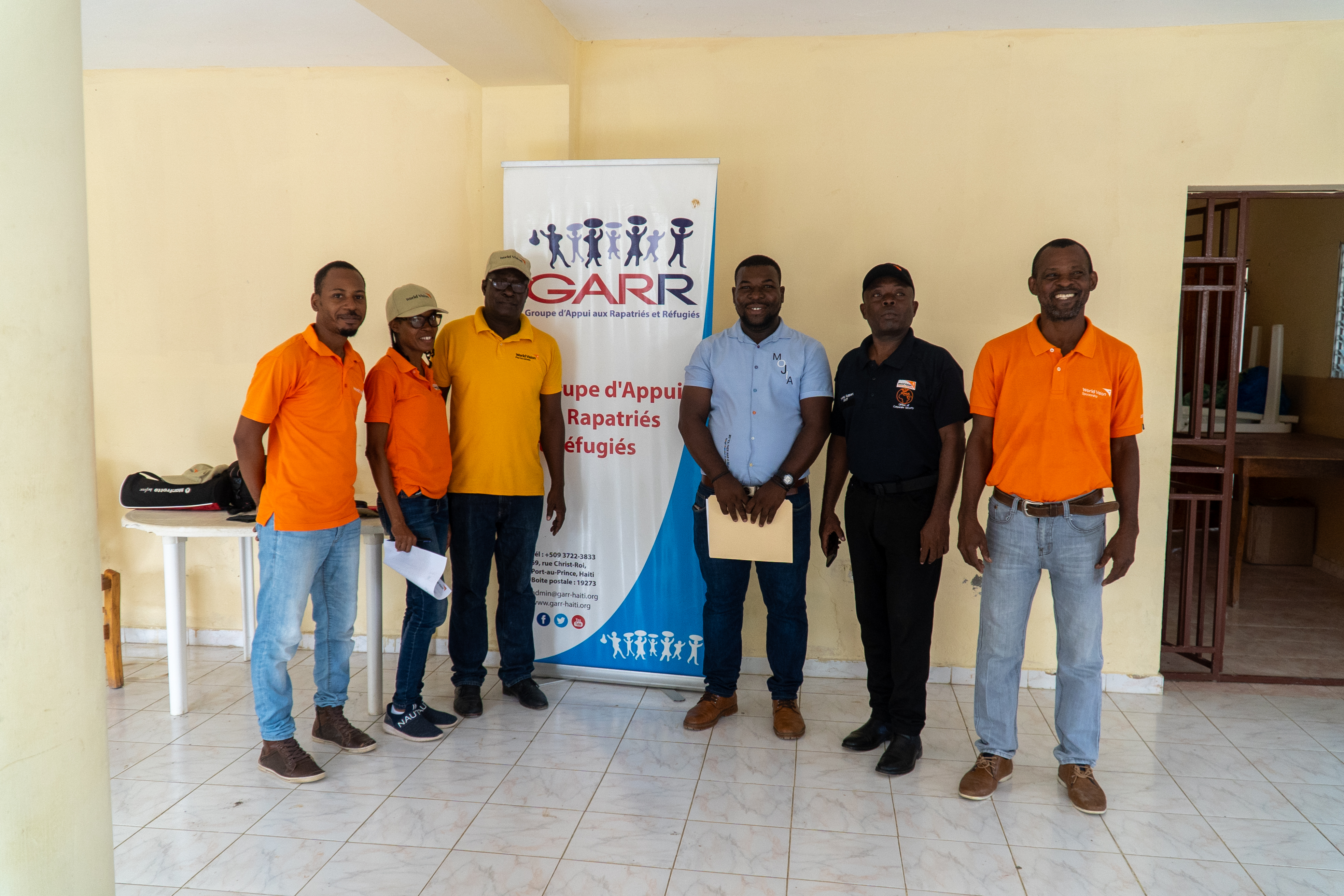
5- Successes and Remaining Challenges
The collaboration between World Vision, GARR, and Zanmi Timoun ensured the success of the NFI distribution. Deportees welcomed the assistance, but significant needs remain unmet. WASH (water, sanitation, and hygiene), health and nutrition services, and psychological support are pressing needs that require urgent attention.
Deportees also called for additional supplies, such as more diapers for infants, undergarments, and clean clothing. As the deportation crisis continues, the humanitarian response will need to adapt and expand to meet the evolving needs of those displaced.
World Vision, alongside its partners, is committed to responding to this growing crisis, working to ensure that those affected by these mass deportations receive the care and support they need to rebuild their lives.